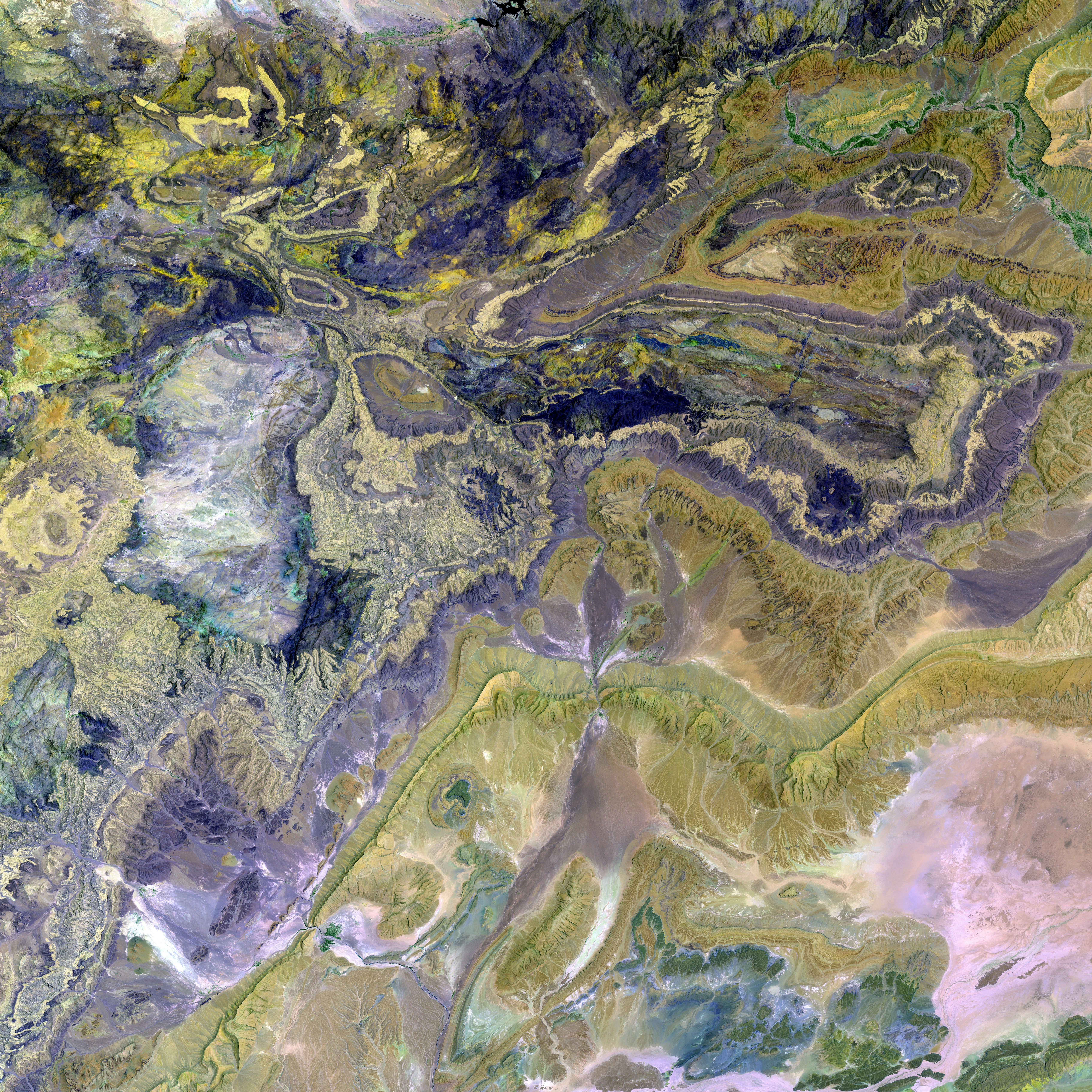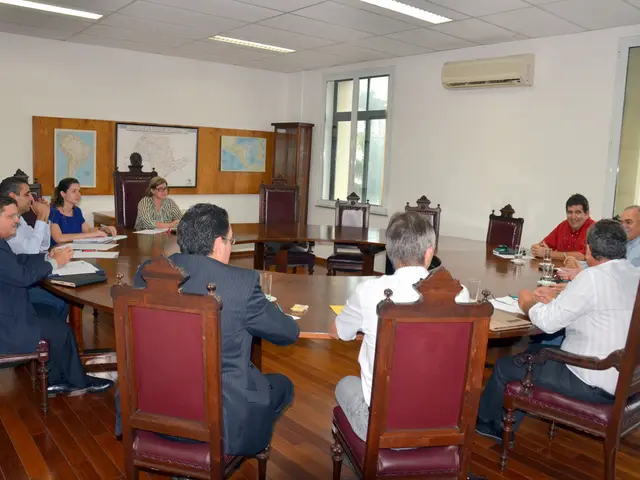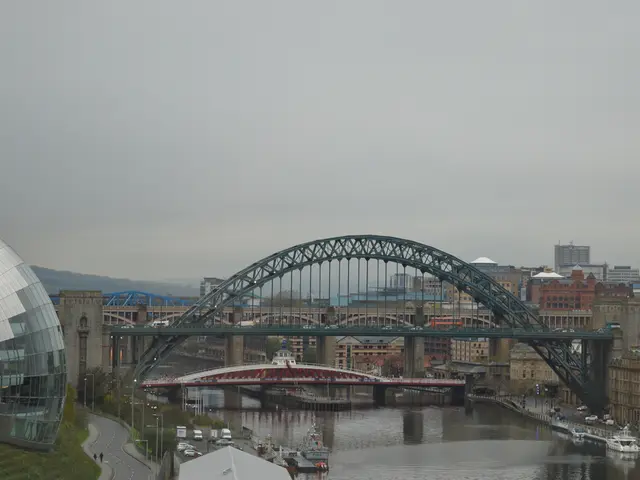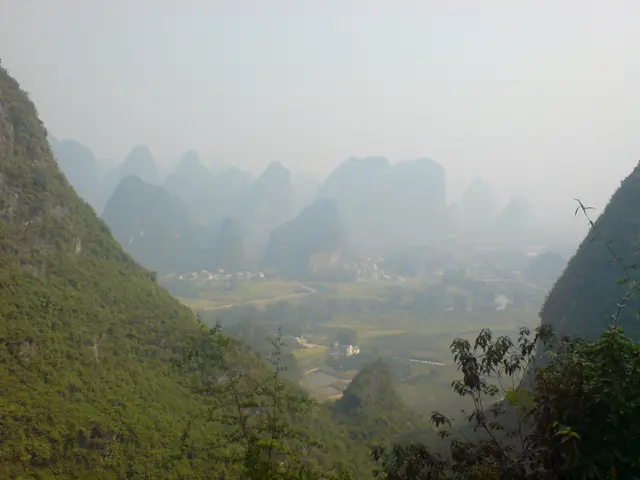Demonstrators are demanding that Morocco terminate its relations with Israel, and they are focusing their efforts on critical seaports in order to pressure the government into compliance.
Moroccan Port Protests: A Showdown Over Israel Ties
The Moroccan coastline, carpeted with shipping cranes and stacked containers, reverberates with the echoes of passion and defiance. A year of unrest over Morocco's decision to establish diplomatic ties with Israel has amplified dissent and widened a chasm between government decisions and public sentiments, galvanizing demonstrators in the country's strategic ports.
At the forefront of these protests stands Ismail Lghazaoui, a 34-year-old agricultural engineer, who, under a sea of Palestinian flags, joins the protesters in their crusade against a vessel transporting fighter jet components from Houston, Texas.
Activists vehemently urge Moroccan port officials to bar ships carrying military cargo destined for Israel, drawing inspiration from Spain's actions last year. The boycott movement often targets Danish shipping giant Maersk, a key player in facilitating the assembly of Lockheed Martin's F-35 jets through the U.S. Defense Department's Security Cooperative Participant Program.
Lghazaoui's commitment to the cause was sealed through a prison sentence last year, yet it fueled his resolve to participate in subsequent protests. His voice may be silenced, but his activism lives on through social media and continued participation in resurgent demonstrations.
While the Moroccan government has the constitutional latitude to permit free speech, it is illegal to criticize the monarchy, including King Mohammed VI, with potential consequences for dissenters. Throughout the Israel-Hamas conflict, activists who have questioned the government's Israel policies or protested businesses linked to Israel have faced imprisonment.
During a rally in Casablanca, Lghazaoui and fellow demonstrators faced brutal beatings from plainclothes officers in an attempt to thwart their march towards the U.S. Consulate. Lghazaoui's experiences have served as a cautionary tale for those who dare challenge the status quo. In a candid conversation with The Associated Press, he stated, "They try to silence people. They were using me to dissuade people or to push people away from what they were doing."
A Broader Campaign for Normalization's Demise
Morocco, one of four Arab states to normalize ties with Israel as part of the Abraham Accords in 2020, has garnered U.S. support for its contentious claims over Western Sahara, a disputed territory. However, public resentment toward these ties has swelled throughout the Israel-Hamas war.
Professor Aboubakr Jamai, dean of the Madrid Center at the American College of the Mediterranean, observed, "I've rarely seen such a chasm between public opinion and the monarchy. What the power elites are doing goes completely against what the Moroccan people want."
As demonstrators poured into Moroccan streets since the war's onset, their ranks have encompassed families, students, Islamists, leftists, union members, as well as more radical voices. Some have burned Israeli flags or denounced royal advisor André Azoulay, a Jewish Moroccan. Security forces have remained conspicuous witnesses to the protests, tolerating protesters' denunciations of "normalization" and Morocco's burgeoning trade and military ties with Israel.
Domestic Cracks and Diplomatic Shifts
The prolonged war has also revealed fault lines within Moroccan society. Some question whether the focus on Gaza merely serves to divert attention from pressing domestic issues, such as the marginalization of indigenous Amazigh populations and the dispute over Western Sahara. Conversely, the Islamist Justice and Development Party, which previously backed normalization with Israel while in power, now invites senior Hamas officials to its congress in Rabat, reflecting subtle shifts in political discourse around Palestine.
Beneath the Surface: Enrichment Insights
- The Union of Port Workers in Morocco launched a boycott of Maersk cargo ships transporting military equipment to Israel.
- Maersk has acknowledged that ships transiting Moroccan ports carried F-35 fighter jet components, but it denies shipments of weapons to conflict zones, insisting that military cargo requires end-use certificates to verify the final destination.
- Morocco's Foreign Ministry has remained silent on the matter, although Moroccan diplomats have argued that relations with Israel facilitate a push for a two-state solution and aid delivery to Gaza.
- The Union of Port Workers in Morocco has launched a boycott of Maersk cargo ships, protesting their transport of military equipment destined for Israel.
- Maersk acknowledges that ships transiting Moroccan ports carried F-35 fighter jet components, but denies shipments of weapons to conflict zones.
- The Moroccan government, while permitting free speech constitutionally, has illegal constraints on criticizing the monarchy, particularly King Mohammed VI.
- Activists in Moroccan ports, such as Ismail Lghazaoui, have been engaging in protests against Israeli ties, drawing inspiration from Spain's past actions.
- In general news and politics, a chasm has emerged between government decisions and public sentiments in Morocco, amplified by the Israel-Hamas conflict and the decision to establish ties with Israel.
- The Moroccan coastline, with its busy ports, has become the stage for passionate demonstrations against the normalization of relations with Israel.
- The media in Toronto and around the world have reported on these protests, highlighting the political tensions and the diverse groups, from Islamists to students, involved in the demonstrations.
- In the realm of arts and opinions, the protests over Morocco's Israel ties have attracted widespread attention and debate, with many questioning the political implications of the diplomatic decisions and the potential impacts on war-and-conflicts in the Middle East.







